#daniel l fapp
Text
Eisstation Zebra
Story: Nachdem ein sowjetischer Spionagesatellit mitten im Kalten Krieg mit geheimem Filmmaterial ungeplant am Nordpol abgestürzt ist, machen sich beide Supermächte auf, in den Besitz des Filmes zu gelangen, denn darauf sind, durch einen Steuerungsfehler des Satelliten bedingt, die Raketenbasen nicht nur der amerikanischen, sondern auch der sowjetischen Seite abgelichtet. James Ferraday,…

View On WordPress
#Abenteuer#Action#Alf Kjellin#Alistair MacLean (Roman)#Armee#Atom-U-Boot#Auftrag#Britischer Geheimdienst#Daniel L. Fapp#Douglas Heyes#Ernest Borgnine#Forschungsstation#Geheimagent#Gejagte#Gerald S. O`Laughlin#Harry Julian Fink#Insel#Jagd#Jäger#James C. Pratt#Jim Brown#John Calley#John Sturges#Kalter Krieg#Kampf#Lloyd Nolan#Martin Ransohoff#Michel Legrand#Militär#Navy Seal
1 note
·
View note
Text
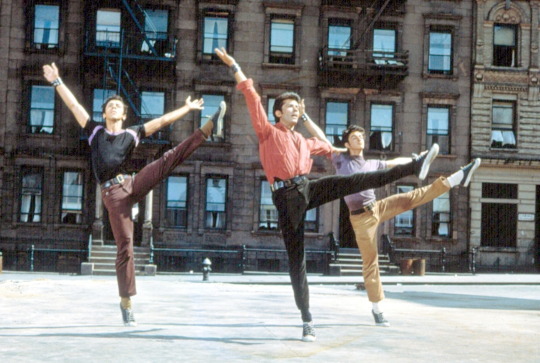
𝑾𝒆𝒔𝒕 𝑺𝒊𝒅𝒆 𝑺𝒕𝒐𝒓𝒚 is a 1961 American musical romantic drama film directed by Robert Wise and Jerome Robbins, written by Ernest Lehman, and produced by Wise.
The film is an adaptation of the 1957 Broadway musical of the same title, which in turn was inspired by Shakespeare's play Romeo and Juliet.
It stars Natalie Wood, Richard Beymer, Russ Tamblyn, Rita Moreno, and George Chakiris, and was photographed by Daniel L. Fapp in Super Panavision 70.
The music was composed by Leonard Bernstein, with lyrics by Stephen Sondheim.
34 notes
·
View notes
Photo
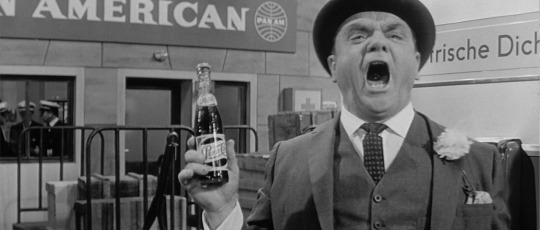
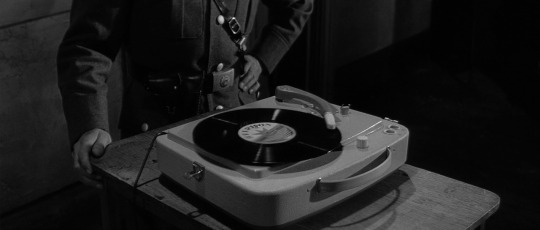
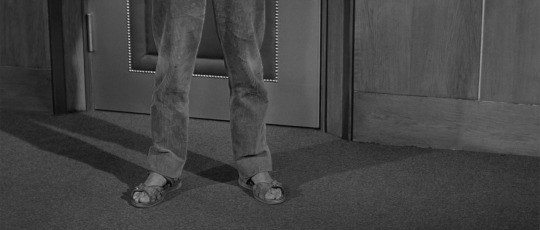
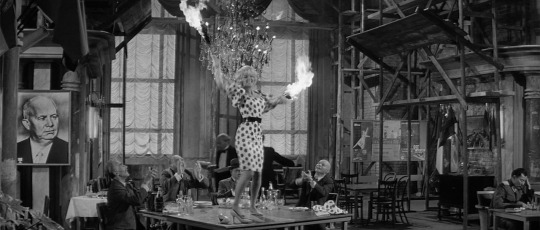
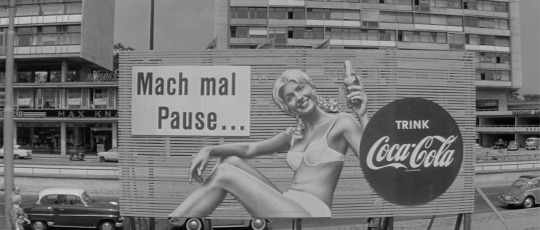
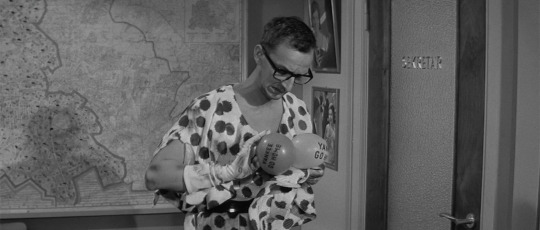
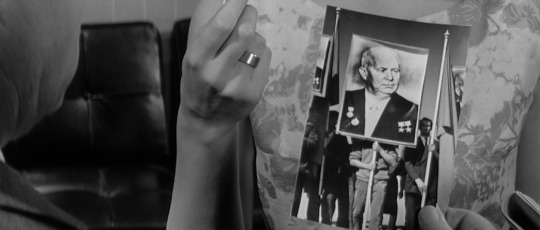
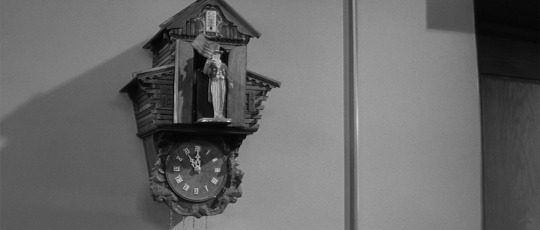
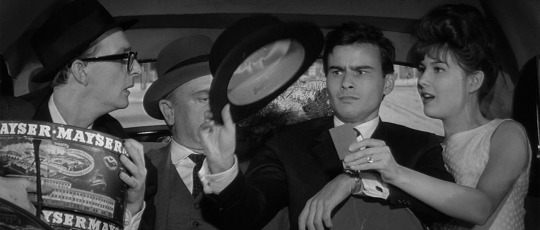
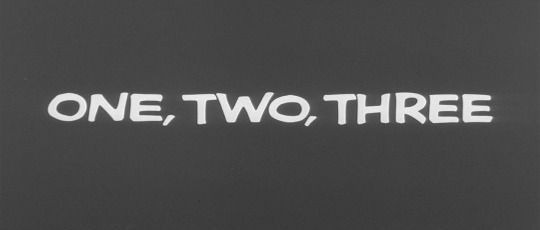
“So you just tell Daddy I'm on my way to the U.S.S.R. That's short for Russia.”
One, Two, Three, 1961.
Dir. Billy Wilder | Writ. Billy Wilder and I.A.L. Diamond | DOP Daniel L. Fapp
18 notes
·
View notes
Photo
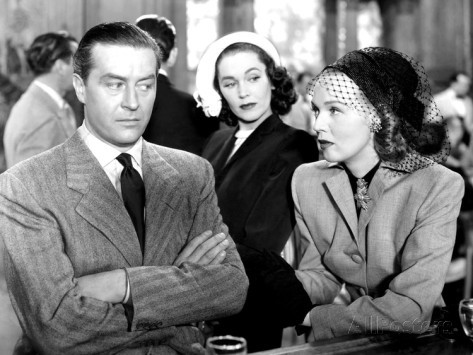
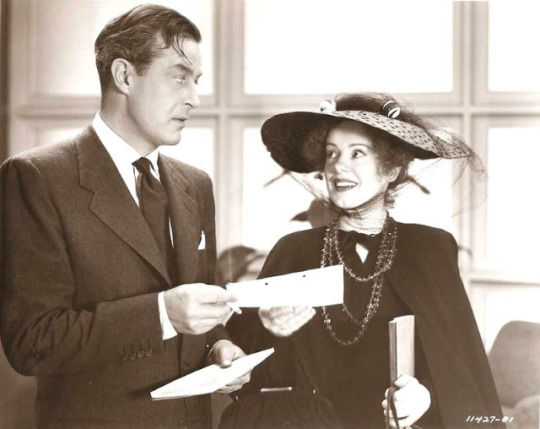


The Big Clock (John Farrow, 1948)
Cast: Ray Milland, Charles Laughton, Maureen O'Sullivan, George Macready, Rita Johnson, Elsa Lanchester, Harold Vermilyea, Dan Tobin, Harry Morgan. Screenplay: Jonathan Latimer, based on a novel by Kenneth Fearing. Cinematography: Daniel L. Fapp, John F. Seitz. Art direction: Roland Anderson, Hans Dreier, Albert Nozaki. Film editing: LeRoy Stone. Music: Victor Young.
The Big Clock is a satisfying blend of suspense and comedy of the kind often called "Hitchcockian," which usually means it would probably have been even better if Hitchcock had directed it. But since he didn't, it's worth admiring what director John Farrow and screenwriter Jonathan Latimer did with the material provided them by Kenneth Fearing's novel. Fearing had worked at Time magazine when Henry Luce was head of that publishing empire, so it's clear that he had Luce in mind when he created the imperious Earl Janoth, played with mustache-stroking glee by Charles Laughton in the film. So there's a substratum of satire on publishing moguls like Luce -- a breed that still exists in our day, embodied by Rupert Murdoch. (And still attracts satire, viz., HBO's Succession.) The plot centers on another Hitchcockian trope, the Wrong Man. In this case, the object of suspicion is George Stroud, editor of one of Janoth's properties, a true crime magazine called Crimeways. Ray Milland plays Stroud, a hard-charging journalist who feels trapped in Janoth's empire. Eventually, through a well-set-up series of coincidences, Stroud finds himself investigating a murder in which he becomes the chief suspect, even though it was actually committed by no less than Janoth. There are domestic complications, too, involving Stroud's wife, a thankless role nicely played by Maureen O'Sullivan. The victim is Janoth's mistress, with whom Stroud has become involved because she suggests she has dirt on Janoth that Stroud can use to his advantage. The film handles all of these plot snarls with finesse, one of the rare instances in which knowing whodunit from the outset doesn't detract from the suspense. Censorship blunts some of the edges: In the novel, Stroud's marriage was less happy and his involvement with the victim more intimate. Janoth's bisexuality was also more explicit in the source -- in the film it's suggested when we see Janoth receiving a massage from his bodyguard, played silently by Harry Morgan, who remains a brooding presence in the background of other scenes. The film is enlivened by a gallery of mostly comic secondary characters, including Elsa Lanchester as a giddy artist whose works Stroud for some reason collects.
6 notes
·
View notes
Audio
(Literary License Podcast)
West Side Story (1961)
West Side Story is a 1961 American musical romantic drama film directed by Robert Wise and Jerome Robbins. With a screenplay by Ernest Lehman, the film is an adaptation of the 1957 Broadway musical of the same title, which in turn was inspired by Shakespeare's play Romeo and Juliet. It stars Natalie Wood, Richard Beymer, Russ Tamblyn, Rita Moreno, and George Chakiris, and was photographed by Daniel L. Fapp in Super Panavision 70. The music was composed by Leonard Bernstein, with lyrics by Stephen Sondheim. Released on October 18, 1961, through United Artists, the film received high praise from critics and viewers, and became the highest-grossing film of 1961. It was nominated for 11 Academy Awards and won 10, including Best Picture (in addition to a special award for Robbins), becoming the record holder for the most wins for a musical.
West Side Story (2021)
West Side Story is a 2021 American musical romantic drama film directed and co-produced by Steven Spielberg from a screenplay by Tony Kushner. It is the second feature-length adaptation of the 1957 stage musical of the same name.It stars Ansel Elgort and Rachel Zegler in her film debut with Ariana DeBose, David Alvarez, Mike Faist, and Rita Moreno in supporting roles. Moreno, who starred in the 1961 film adaptation, also served as an executive producer alongside Kushner.[3] The film features music composed by Leonard Bernstein with lyrics by Stephen Sondheim. The film entered development in 2014 at 20th Century Fox; Kushner began writing the screenplay in 2017. In January 2018, Spielberg was hired and casting began that September. Justin Peck choreographed the dance sequences. Principal photography occurred in New York and New Jersey; filming began in July 2019 and ran for two months. The film was a box office bomb losing over $100million dollars at the box office.
0 notes
Photo

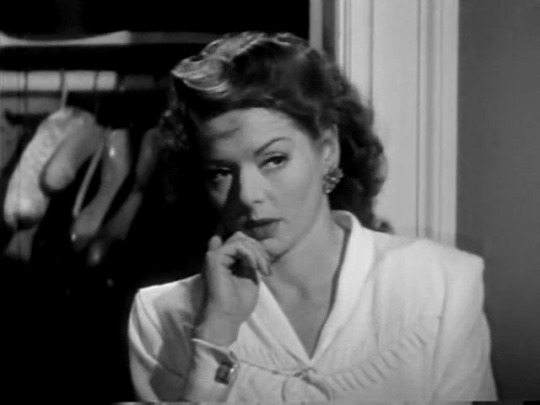
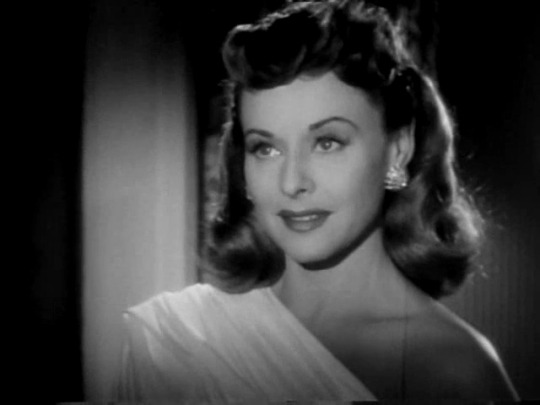

suddenly it’s spring (us, leisen 47)
12 notes
·
View notes
Text
West Side Story (1961 & 2021)
Robert Wise & Steven Spielberg
Natalie Wood Rachel Zegler
Richard Beymer Ansel Elgort
#West Side Story#Robert Wise#Daniel L. Fapp#Thomas Stanford#Natalie Wood#Richard Beymer#1961#60s#remake#West Side Story 2021#Steven Spielberg#Spielberg#Janusz Kaminski#Mitch Dubin#Michael Kahn#Sarah Broshar#Rachel Zegler#Ansel Elgort#2021#musical#crime#romance#drama#brilliant#great#movies#scenes#cinema
45 notes
·
View notes
Photo

West Side Story (1961)
“All of you! You all killed him! And my brother, and Riff. Not with bullets, or guns, with hate. Well now I can kill, too, because now I have hate!”
Directors: Jerome Robbins & Robert Wise
Cinematographer: Daneil L. Fapp
11 notes
·
View notes
Photo

- I didn't believe hard enough.
- Loving is enough.
- Not here. They won't let us be.
- Then we'll run away.
- Yeah, we can.
- Yes.
- We will...
West Side Story, Robert Wise and Jerome Robbins (1961)
#Robert Wise#Jerome Robbins#Ernest Lehman#Stephen Sondheim#Natalie Wood#Richard Beymer#Russ Tamblyn#Rita Moreno#George Chakiris#Simon Oakland#Ned Glass#William Bramley#Tucker Smith#Tony Mordente#David Winters#Daniel L. Fapp#Leonard Bernstein#Thomas Stanford#1961
11 notes
·
View notes
Photo

West Side Story (1961)
#1960s#actor natalie wood#dir robert wise#dir jerome robbins#dp daniel l fapp#cat crime#cat melodrama#cat musical#cat teen#cat romance#american#hand#brown eyes#soft focus#shadow#west side story#west side story 1961
5 notes
·
View notes
Photo

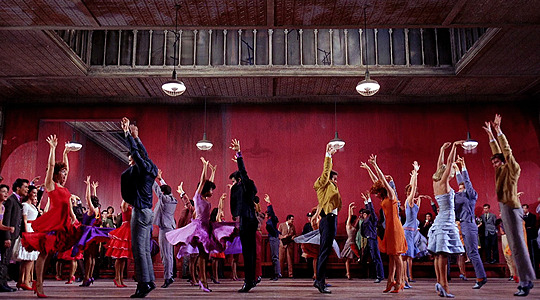
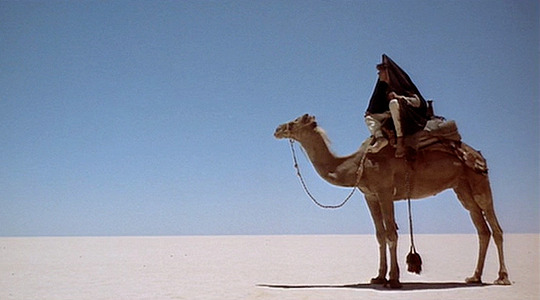
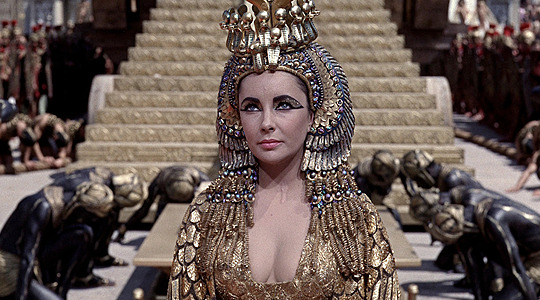
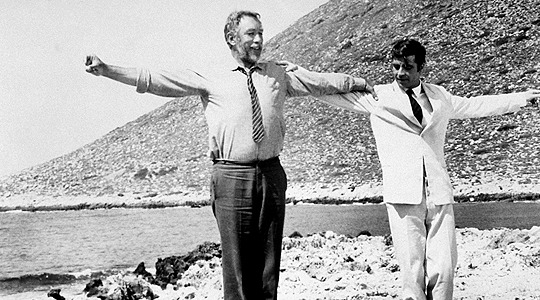
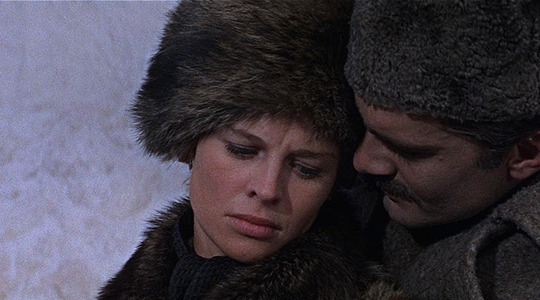
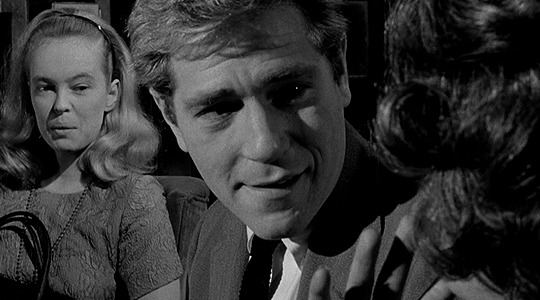


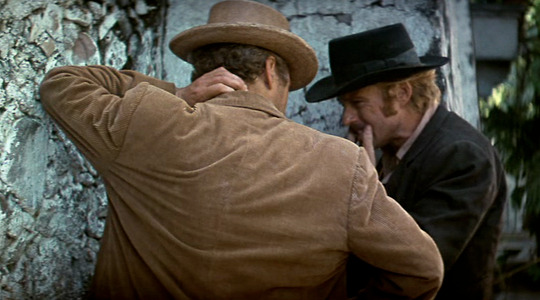
And the Academy Award for Best Cinematography goes to -
1960 - (Colour) Russell Metty - Spartacus
(Not pictured - BW- Freddie Francis - Sons & Lovers)
1961 - (Colour) Daniel L. Fapp - West Side Story
(Not pictured - BW - Eugen Schüfftan - The Hustler)
1962 - (Colour) Freddie Young - Lawrence of Arabia
(Not pictured - BW - Jean Bourgoin & Walter Wottitz - The Longest Day)
1963 - (Colour) Leon Shamroy - Cleopatra
(Not pictured - BW - James Wong Howe - Hud)
1964 - (BW) - Walter Lassaly - Zorba The Greek
(Not pictured - Colour -Harry Stradling - My Fair Lady)
1965 - (Colour) Freddie Young - Doctor Zhivago
(Not pictured - BW - Ernest Laszlo - Ship of Fools)
1966 - (BW) Haskell Wexler - Who’s Afraid of Virginia Woolf?
(Not pictured - Colour - Ted Moore - A Man For All Seasons)
1967 - Burnett Guffey - Bonnie & Clyde
1968 - Pasqualino De Santis - Romeo & Juliet
1969 - Conrad L. Hall - Butch Cassidy & The Sundance Kid
#cinematography#award season#academy awards#cinematographer#russell metty#daniel l fapp#freddie young#leon shamroy#walter lassaly#haskell wexler#burnett guffey#pasqualiano de santis#conrad l hall#60s#spartacus#west side story#lawrence of arabia#long post#cleopatra#zorba the greek#doctor zhivago#who's afraid of virginia woolf?#bonnie & clyde#bonnie and clyde#romeo & juliet#butch cassidy and the sundance kid#1960s#non gifs
326 notes
·
View notes
Photo


West Side Story // Jerome Robbins and Robbin Wise (1961)
Cinematography: Daniel L. Fapp
#west side story#a-rab#baby john#musical#movie musical#cinematography#1961#old movies#vintage#sondheim#leonard bernstein#i wish it was yesterday#quote#sad#jerome robbins#robbin wise#daniel l fapp#david winters#eliot field#west side story 1961#movie#film#color#captions#subtitles
18 notes
·
View notes
Photo
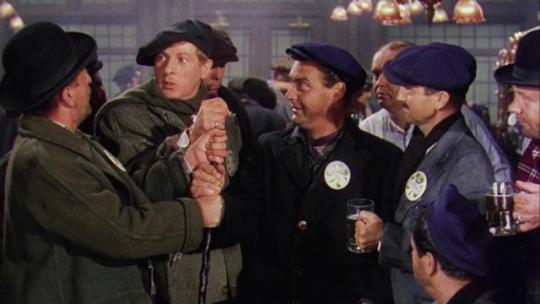
Today's review on MyOldAddiction.com, Knock On Wood by #MelvinFrank, #NormanPanama starring #DannyKaye and #MaiZetterling, "All the elements are blended beautifully in this hilarious adventure" MELVIN FRANK, NORMAN PANAMA Bil's rating (out of 5): BBBB. USA, 1954. Dena Productions…
#Abner Biberman#Academy Award 1954#Alma Macrorie#Daniel L. Fapp#Danny Kaye#David Burns#Dena Productions#Diana Adams#Edith Head#Gavin Gordon#Hal Pereira#Henry Brandon#Henry Bumstead#Johnstone White#Leon Askin#Lewis Martin#Mai Zetterling#Melvin Frank#Norman Panama#Otto Waldis#Patricia Denise#Paul England#Steven Geray#Torin Thatcher#Victor Young#Virginia Huston
0 notes
Photo
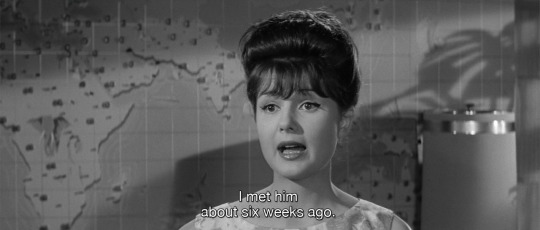
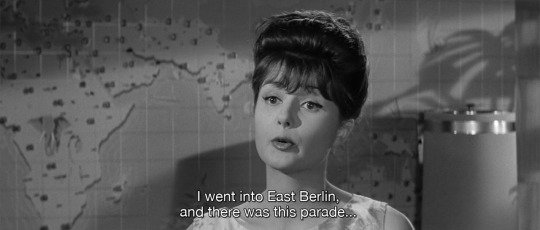



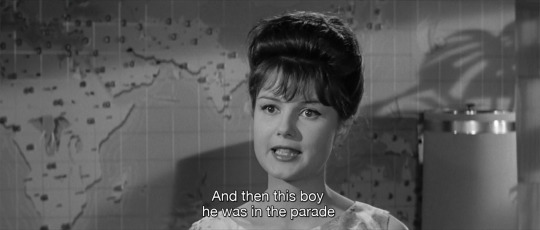
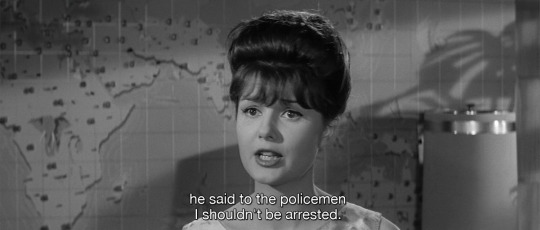
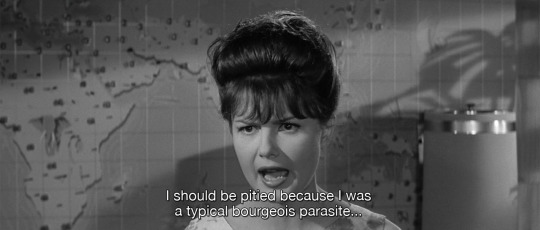


One, Two, Three, 1961.
Dir. Billy Wilder | Writ. I.A.L. Diamond and Billy Wilder | DOP Daniel L. Fapp
14 notes
·
View notes
Photo

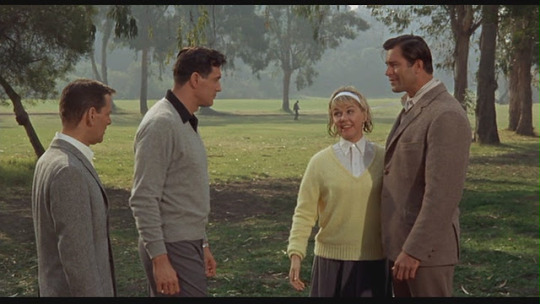
Doris Day, Rock Hudson, and Tony Randall in Lover Come Back
Tony Randall, Rock Hudson, Doris Day, and Clint Walker in Send Me No Flowers
Lover Come Back (Delbert Mann, 1961)
Cast: Rock Hudson, Doris Day, Tony Randall, Edie Adams, Jack Oakie, Jack Kruschen, Ann B. Davis. Screenplay: Stanley Shapiro, Paul Henning. Cinematography: Arthur E. Arling. Art direction: Robert Clatworthy, Alexander Golitzen. Film editing: Marjorie Fowler. Music: Frank De Vol.
Send Me No Flowers (Norman Jewison, 1964)
Cast: Rock Hudson, Doris Day, Tony Randall, Paul Lynde, Hal March, Edward Andrews, Clint Walker, Screenplay: Julius J. Epstein, based on a play by Norman Barasch, Carroll Moore. Cinematography: Daniel L. Fapp. Art direction: Robert Clatworthy, Alexander Golitzen. Music: Frank De Vol.
The gag "I knew Doris Day before she was a virgin" has been attributed to various wags, including Groucho Marx and Oscar Levant, but in fact the canard that the Rock Hudson-Doris Day comedies were about Day defending her virginity stems mainly from the second of the three films, Lover Come Back. In the first, Pillow Talk (Michael Gordon, 1959), Day's character seems perfectly willing to go off for a weekend with Hudson's, and in the third, Send Me No Flowers, they're already married. Still, these are sex comedies, and Day's characters are, if not virgins, at least naïve. Pillow Talk remains the best of the trio, if only because its initial teaming of the perky Day with the handsome Hudson feels inspired -- as if its makers had been watching the great screwball comedies of the past and had looked around for contemporary equivalents to Jean Arthur, Rosalind Russell, Katharine Hepburn, Claudette Colbert, and Carole Lombard on the one hand, and Cary Grant, Gary Cooper, Henry Fonda, James Stewart, and Joel McCrea on the other. If Day and Hudson don't seem quite as distinguished as that company, I think that's because the movie industry had changed so much in the interim, with stars no longer seen as members of a studio's repertory troupe. To my mind, Day and Hudson hold their own nicely. What had also changed was a certain coarsening of the treatment of sex as the Production Code began to crumble -- there's a sense that writers and directors in the heyday of screwball comedy were content to finesse the limitations of the Code while those of the early 1960s were thumbing their noses at it. Certainly there's nothing so crass in the great comedies of the 1930s and '40s as the scene in Lover Come Back in which Day's Carol Templeton orders a designer to remodel the container of a potential client's product, saying that whoever gets the contract will have "the most attractive can." Cut to a closeup of the bunny-tail-adorned bottom of Edie Adams as the nightclub dancer Rebel Davis. There's also a lot of humor in these movies that feels sadly dated, especially the play on symbols of the Confederacy when Hudson's Jerry is trying to woo a Southern client: Rebel exposes an array of Confederate battle flags across her chest as the band plays "Dixie." Send Me No Flowers feels a little less crass than either Pillow Talk or Lover Come Back, partly because we have moved from sex comedy to domestic comedy of the sort more familiar from TV sitcoms: Hudson's George is a hypochondriac who mistakenly thinks he's dying and wants to provide for Day's somewhat ditzy and impractical Judy. If the brawny Hudson seems like a misfit in this part, we have to accept it as a given -- just as we have to accept the goofiness of Cary Grant as a paleontologist in Bringing Up Baby (Howard Hawks, 1938). Perhaps one reason the producers cast the improbably large Clint Walker as Judy's old boyfriend was to make Hudson look comparatively normal in size.
#Lover Come Back#Send Me No Flowers#Delbert Mann#Norman Jewison#Rock Hudson#Doris Day#Tony Randall#Clint Walker
5 notes
·
View notes
Photo
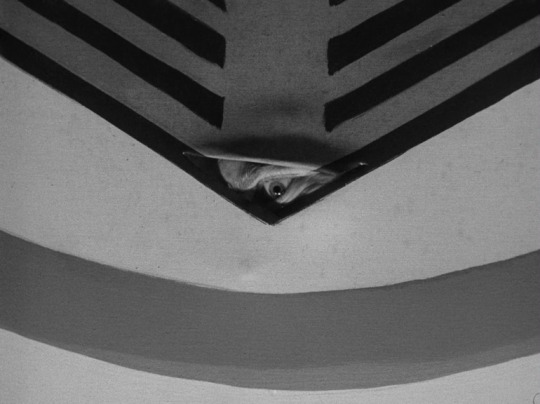
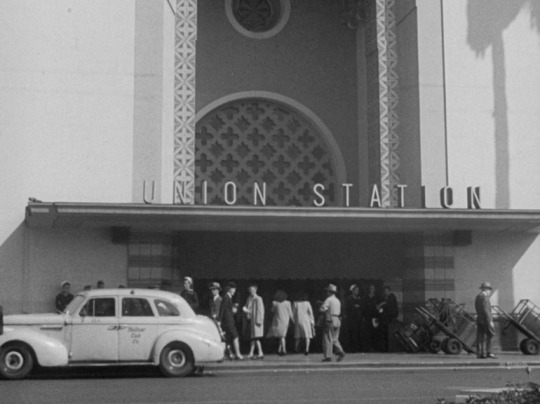
union station (us, maté 50)
10 notes
·
View notes